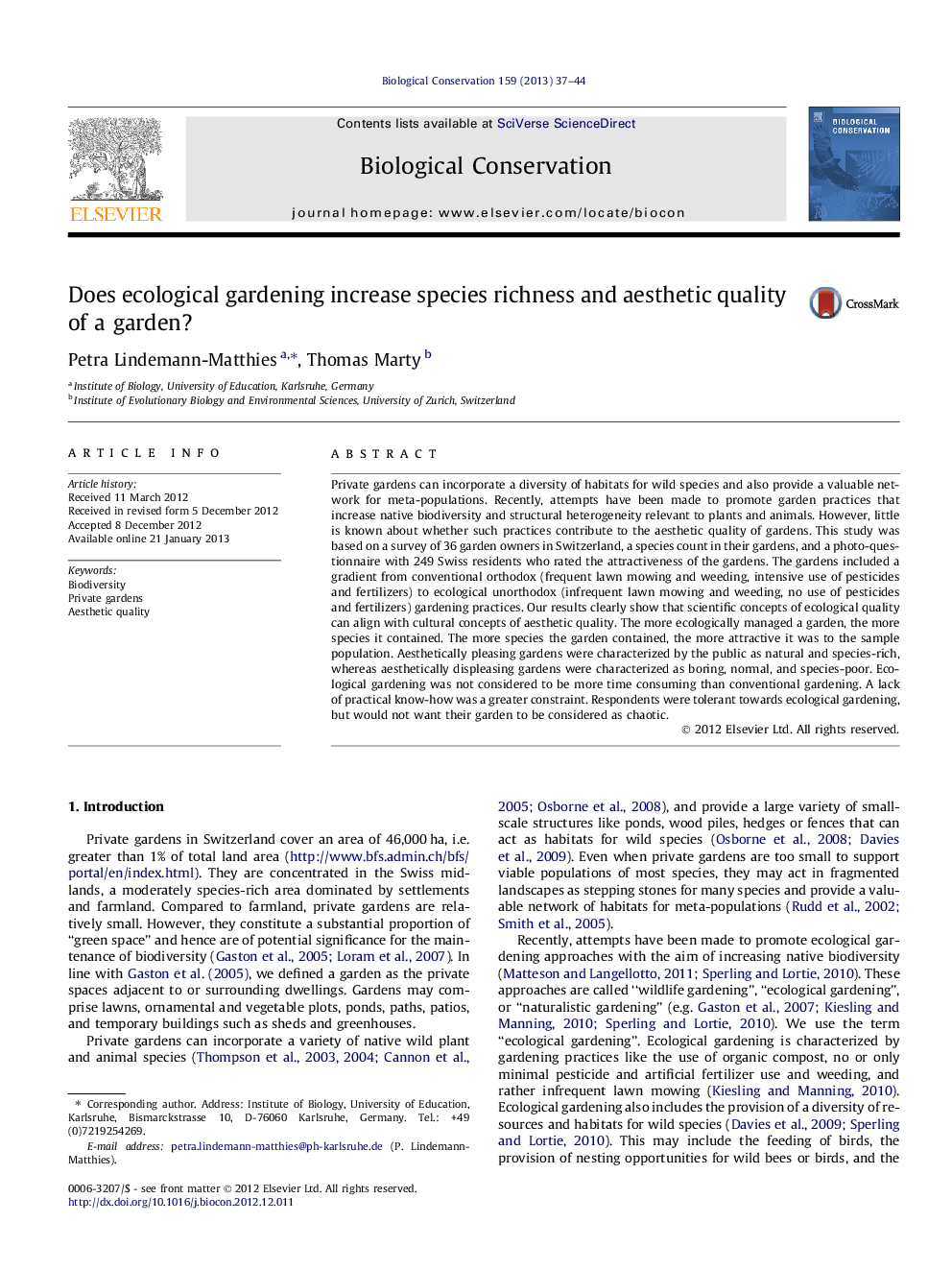| Article ID | Journal | Published Year | Pages | File Type |
|---|---|---|---|---|
| 6300930 | Biological Conservation | 2013 | 8 Pages |
Abstract
Private gardens can incorporate a diversity of habitats for wild species and also provide a valuable network for meta-populations. Recently, attempts have been made to promote garden practices that increase native biodiversity and structural heterogeneity relevant to plants and animals. However, little is known about whether such practices contribute to the aesthetic quality of gardens. This study was based on a survey of 36 garden owners in Switzerland, a species count in their gardens, and a photo-questionnaire with 249 Swiss residents who rated the attractiveness of the gardens. The gardens included a gradient from conventional orthodox (frequent lawn mowing and weeding, intensive use of pesticides and fertilizers) to ecological unorthodox (infrequent lawn mowing and weeding, no use of pesticides and fertilizers) gardening practices. Our results clearly show that scientific concepts of ecological quality can align with cultural concepts of aesthetic quality. The more ecologically managed a garden, the more species it contained. The more species the garden contained, the more attractive it was to the sample population. Aesthetically pleasing gardens were characterized by the public as natural and species-rich, whereas aesthetically displeasing gardens were characterized as boring, normal, and species-poor. Ecological gardening was not considered to be more time consuming than conventional gardening. A lack of practical know-how was a greater constraint. Respondents were tolerant towards ecological gardening, but would not want their garden to be considered as chaotic.
Related Topics
Life Sciences
Agricultural and Biological Sciences
Ecology, Evolution, Behavior and Systematics
Authors
Petra Lindemann-Matthies, Thomas Marty,
